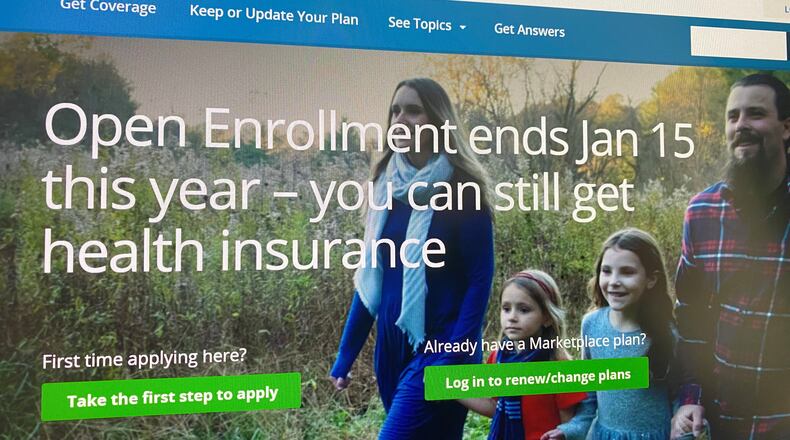People who want to sign up for 2022 Affordable Care Act health insurance plans have until midnight Saturday to complete their enrollment.
Open enrollment for 2022 coverage closes on Jan. 15 for plans that begin coverage on Feb. 1. The deadline has already passed to buy January coverage.
Signups nationwide and in Georgia are on fire, outpacing previous years’. More people are buying the ACA’s individual plans as workers shift jobs and insurance in the pandemic, and as new subsidies have lowered the plans’ out-of-pocket costs.
The Biden administration’s stimulus package last year included new subsidies for people buying ACA plans, especially helping lower some of the sky-high costs that middle- and higher-income policyholders were paying. After those subsidies went into effect, the median deductible for plans nationwide fell from $450 to $50 among new consumers who enrolled during the 2021 special enrollment period earlier last year, according to the U.S. Department of Health and Human Services.
In addition, in Georgia, a subsidy pushed by Gov. Brian Kemp has the state budget paying the insurance companies for some of the more expensive medical claims that come in. That subsidy also is helping lower premium prices, especially in rural areas where costs were highest.
The Biden administration has also lengthened the signup period and put extra money into providing help with open enrollment. Those include “navigators” who can help people sign up for ACA coverage, also known as “Obamacare.” Navigators can also guide callers to other federally funded coverage like Medicaid if they qualify.
Below are some of those resources in Georgia.
RESOURCES
1-800-318-2596
TTY: 1-855-889-4325
This is the main federal shopping website for ACA plans. It allows you to input your expected income level, family size and ZIP code, and then gives you plans and prices you’re eligible for. It presents them together in order to contrast and compare. It allows shoppers to check if their doctor or hospital is currently in the plan’s coverage network.
1-855-772-2663
This is a privately run website that does most of the things Healthcare.gov does. Some agents and shoppers say it’s easier to use.
1-866-988-8246
Insure Georgia was originally a navigator organization, but lost all that funding under the Trump administration. It is now registered as a nonprofit insurance agent, and continues helping people sign up for ACA plans. It’s based in Macon and helps people across the state.
NAVIGATORS
Navigators not only help people sign up for ACA plans, but can help a person understand if they’re eligible for Medicaid or Medicare. The funding numbers reflects the federal dollars spent to ensure each navigator is staffed and ready to answer consumer’s calls.
The Georgia Association for Primary Health Care (GAPHC)
1-844-442-7421
Federal navigator funding: $1.9 million
Works statewide. A network of federally funded clinics, this group pledged to focus on underserved populations across the state and those with restricted access to insurance, and to host public forums and health fairs and air radio ads.
Georgia Legal Services Program (Georgia ENROLL)
1-866-442-3676
Federal navigator funding: $388,248
Works in the 45 rural Georgia counties with the highest uninsured rates. The organization has experience helping people navigate legal difficulties with Medicaid, and is targeting vulnerable populations for assistance.
St. Joseph’s Mercy Care Services
678-843-8527
Federal navigator funding: $206,722
Working in DeKalb and Fulton counties. Assisting people experiencing homelessness, marginally housed, and low-income individuals.
About the Author
The Latest
Featured



